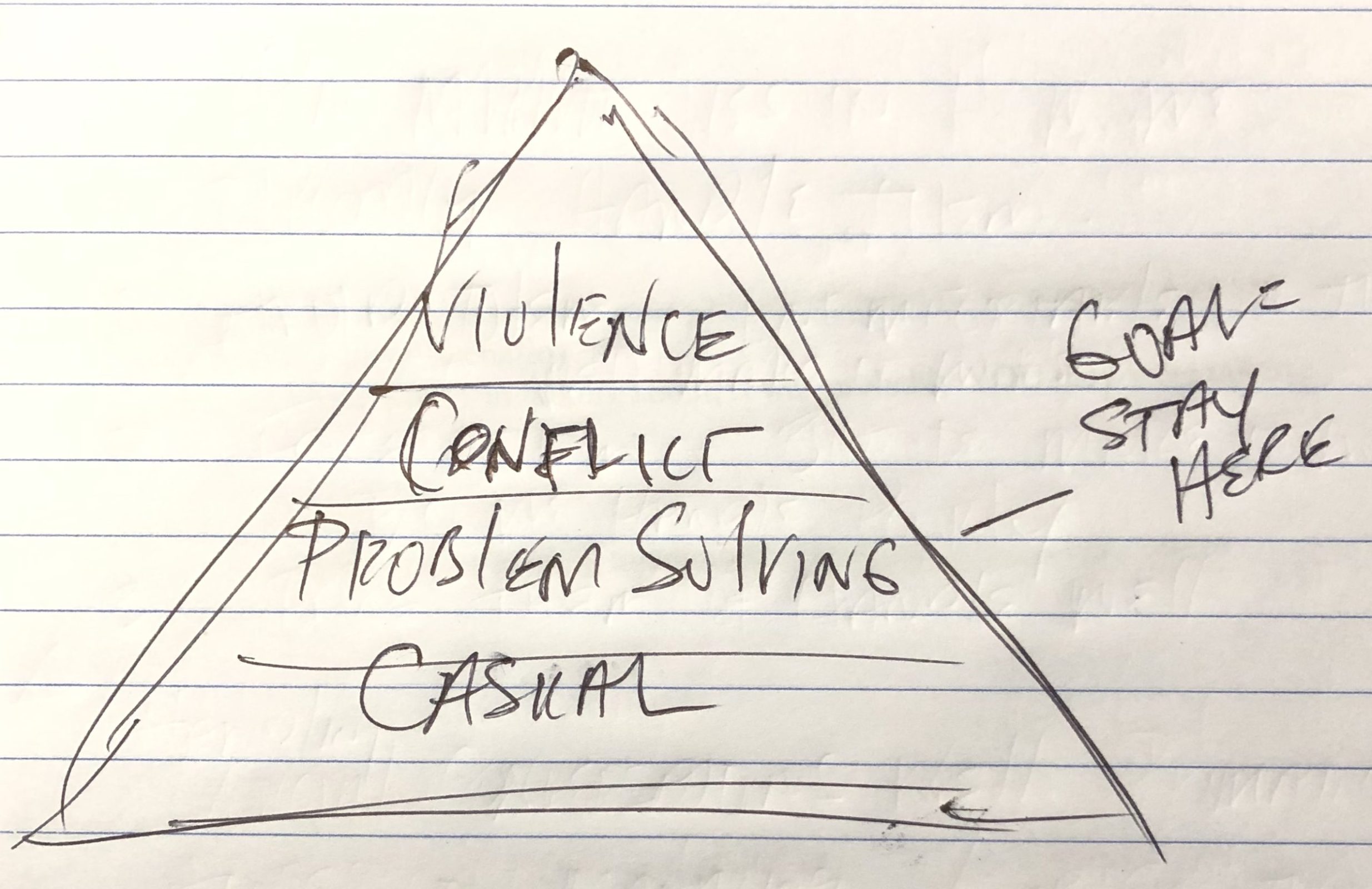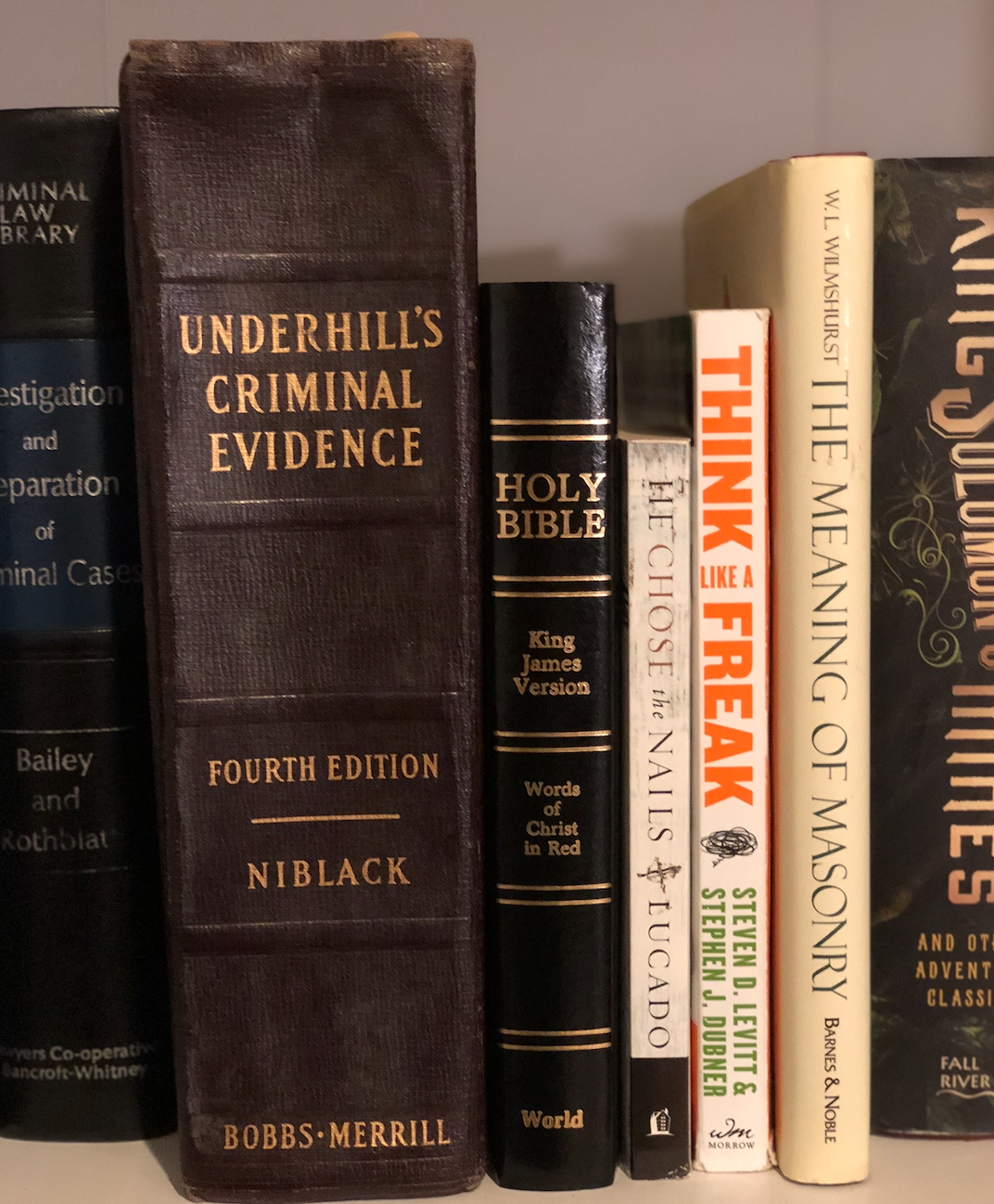No Pain, No Gain! A familiar expression barked by trainers, a well-used mantra for gym-rats. From a muscular development or fitness improvement standpoint it’s true. It’s tough to make gains if you don’t push yourself, and pushing hurts sometimes. As someone who has suffered from chronic headaches and migraines since adolescence, unfortunately I know pain without gain well…and finding ways to press on has been the only option. But I’ve recently been reminded ‘working through’ pain is not always best.
In an effort to find a cause and eliminate what no one wanted to talk about, around the first or second grade (early 1970s), I was subjected to a brain scan. It was a fairly horrifying experience for a little guy, where dozens of wires were poked into the scalp all over my head. It was made worse by A) the probes kept falling out, so they were poked into my skin and then glued to my head; B) a scary-looking, impatient, unsympathetic nurse ripped half my hair out trying to remove the glue afterwards. I’m not sure I ever screamed and cried so much before or since.
I think I had endured an Electroencephalogram. MRIs weren’t quite on the scene yet, but honestly those aren’t my favorite way to spend an afternoon, either. The good news is there was no tumor, aneurysm, or anything else that concerned doctors. The bad news is 1) there was no explanation for the already chronic headaches I still have to this day, and 2) my dad had the perfect lifelong icebreaker and punchline at my expense: “They did a brain scan on David, but they didn’t find anything!” Figuring 45 years of persistent headaches can’t be a good thing, I had a MRI done last year, just in case. Dad: “How did your brain scan come out?” Me: “Good.” Dad: “They didn’t find anything, huh?!” It never gets old.

Chronic intense pain has nearly always been a ‘normal‘ part of my life.
On the bright side, pain is one of the body’s sensors to indicate something is wrong. In his book “Where is God When it Hurts?” Philip Yancey reminds us “Pain sensors loudly alert [our bodies] to danger…”. He says absent pain’s warning, or ignoring or silencing it without heeding it, is dangerous and can lead to greater harm. That’s where the not-so-bright-side comes in.
Ignoring pain, pushing through, deadening it, or turning it off altogether is dangerous and undermines the body’s natural warning systems. Like removing the batteries from your smoke detector or putting tape over your check-engine light because you’re tired of looking at it. Too often we get into the habit of treating pain’s symptoms and ignoring the root cause. This can be through medication, alcohol, or living with reckless abandon. The result is often more damage. Pain is telling us something. We are wise to listen.
I’m not just talking about physical pain.
I have become so accustomed to living with the pain of migraines that when other things hurt, I just try to ignore or deaden it until it subsides. Sometimes it persists so long that it gets drowned out in the ‘noise’ for a period of time it’s not as noticeable. Like people living near railroad tracks or the effect white noise can have on the constant ringing in my ears. But, like ignoring emotional pain that needed attention and psychological pain from unresolved vicarious trauma, I’ve learned pushing through the pain of degenerative joint disease (advanced arthritis) in my shoulder just causes more damage. Not only has the result been near constant discomfort and improper functioning, failure to properly deal it has weakened the surrounding structures.

In just a few weeks of physical therapy I have come to understand I can’t ‘fix’ this arthritis…I’ll live with shoulder pain the rest of my life. But I can strengthen the right areas, re-teach myself proper alignment and function, and learn to listen and respond appropriately to pain. Sometimes that means not pushing through discomfort.
I’m not just talking about my shoulder.
There’s something to be learned from this about pain in our lives; physical, emotional, psychological, or otherwise.
- Recognize its warning
- Protect the injured area(s)
- Strengthen surrounding structures that are weak
- Properly address and treat the root cause
- Don’t bury, numb, or mask it with medication, over-indulgence, or risky behavior
- Avoid it when it’s causing damage or grief
“Like a grain of sand or other irritating substance that finds its way into the shell of an oyster eventually leads to creation of a beautiful pearl; so an injury, irritation, or wrong in our life can become a great blessing and the means to enrich us.” – Karl P. Buswell
My prayer is that you will somehow find blessing in your pain.
Get Strong. Be Strong. Stay Strong.
Yancey, Philip. (1990). Where is God when it hurts. Grand Rapids, MI: Zondervan.













